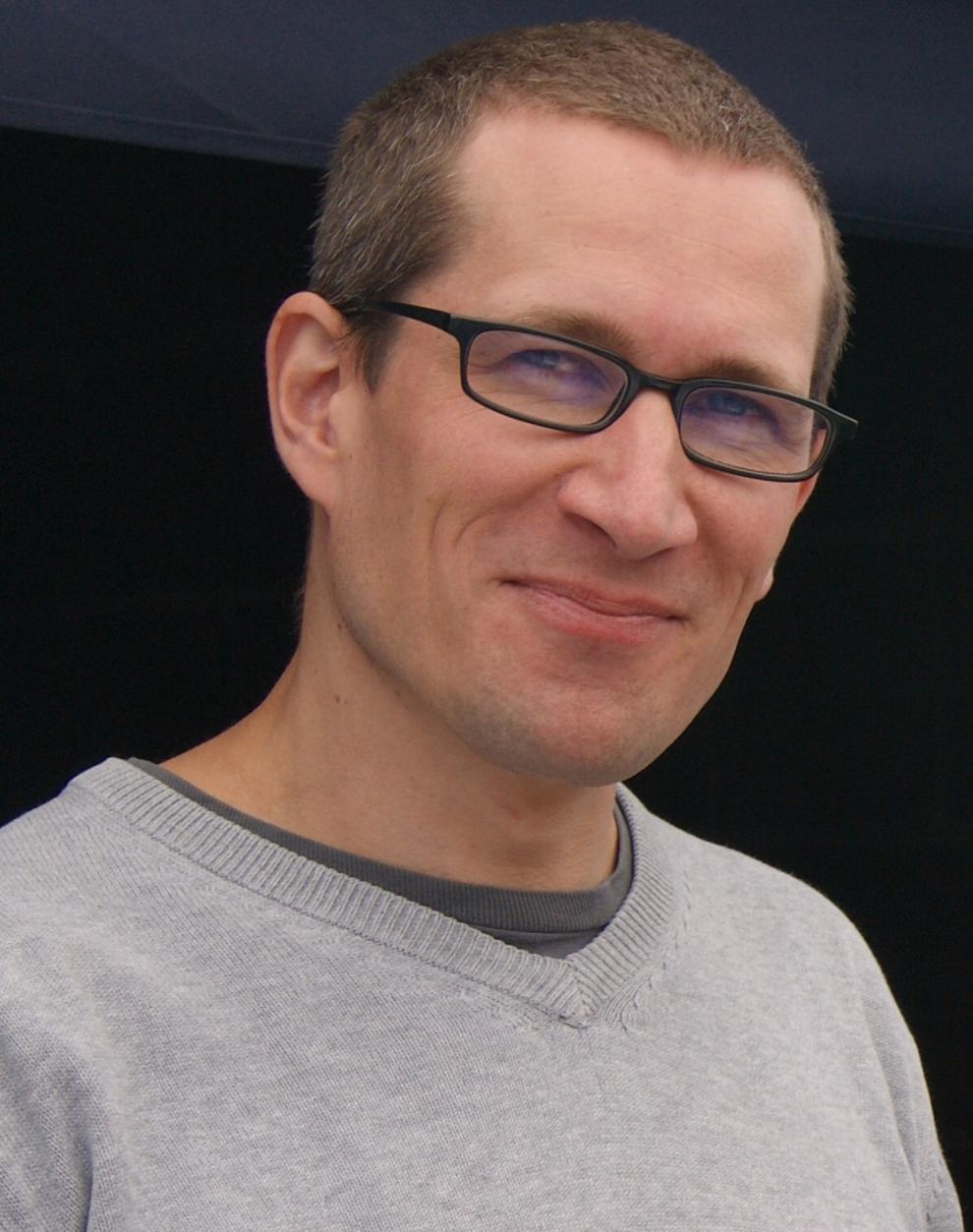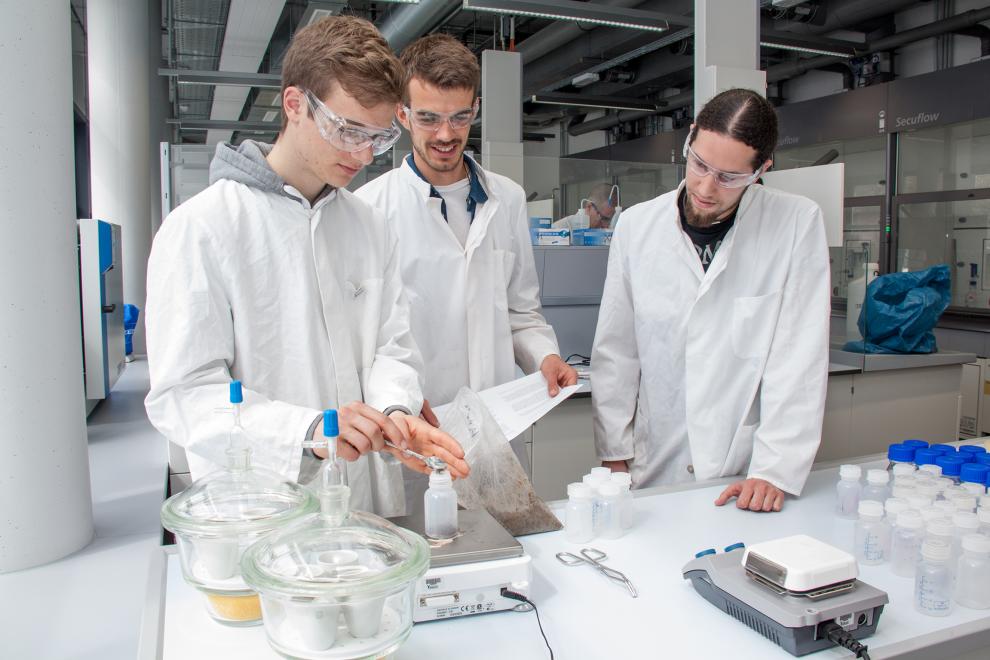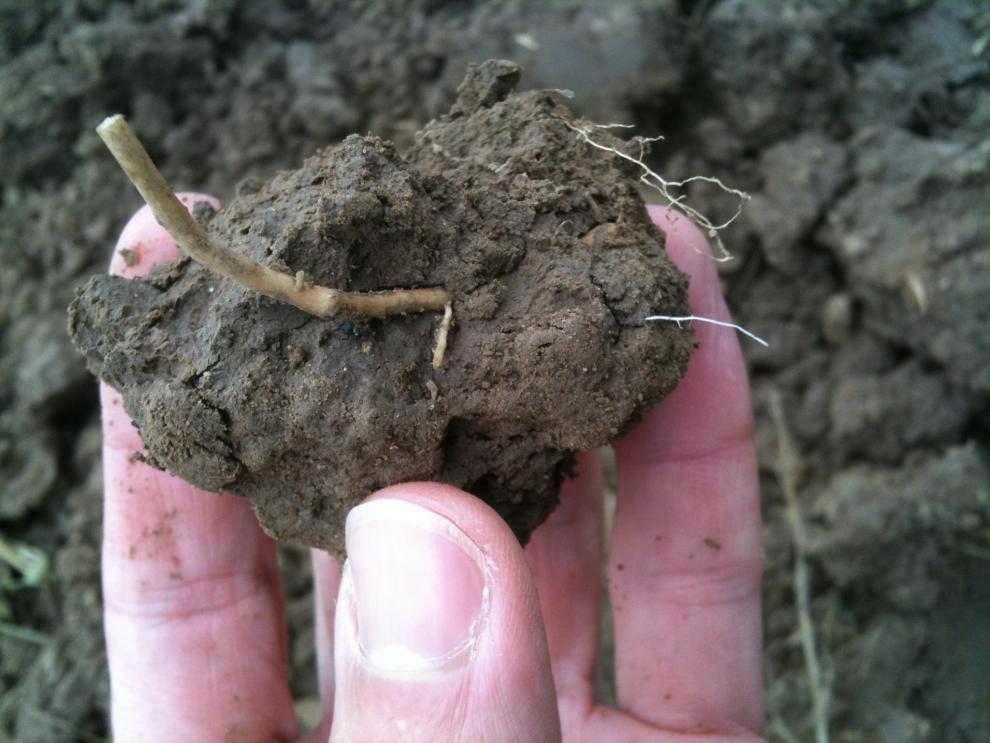First state-sponsored research professorship at Rhine-Waal University of Applied Sciences
As a winner of the ‘Zeit für Forschung’ (Time for Research) competition, Professor Florian Wichern has been granted a state-funded, three-year research professorship to investigate new land management techniques.
Dr Florian Wichern knows land management. As Professor of Soil Science and Plant Nutrition in the Faculty of Life Sciences of Rhine-Waal University of Applied Sciences, he’s interested in finding ways to optimise our land management techniques. One example is his newest project, ‘Soil ionoMICS’, an investigation into the elemental composition of soil microorganisms and their significance as indicators of soil fertility, soil stored carbon and soil stored nitrogen. In other words, the project seeks to find new land management strategies that will not only produce more fertile soil and reduce the environment impact of agriculture, but also actively contribute to climate and water protection efforts.
This ambitious idea was one of 20 projects recently selected by a jury of experts in ‘Zeit für Forschung’ (Time for Research), a funding programme of the Ministry of Innovation, Science and Research of North Rhine-Westphalia. As a result, Soil ionoMICS will receive state funding to the tune of 333,182 EUR and Professor Wichern will be granted a research professorship with a reduced teaching load of up to 50%.
Soil ionoMICS focuses on the in-depth analysis of soil microorganisms, particularly bacteria and fungi, which are the organisms mainly responsible for storing carbon and nitrogen in soil. “For microorganisms to do their job, they need to be well-fed. However, what we actually know about these organisms’ feeding habits and optimal nutrient diets is limited,” notes Professor Wichern. His research aims to change that. By analysing and quantifying the elementary composition of soil microorganisms with respect to the effects of different agriculture techniques, Professor Wichern will gain new insight into their optimal nutrition and diet.
This topic is particularly important for the Lower Rhine, as the farmland in the region suffers from high levels of nitrogen and phosphorous. Professor Wichern ultimately wants to develop a practical and intuitive smartphone app so that farms can easily learn how to improve the quality of their soil and manage it in the most environmentally-friendly way possible. The first step towards this goal is to gather data on ground conditions in the region and how they are affected by different land management strategies.
The project is scheduled to kick off in June 2017 and will run through 2020.



